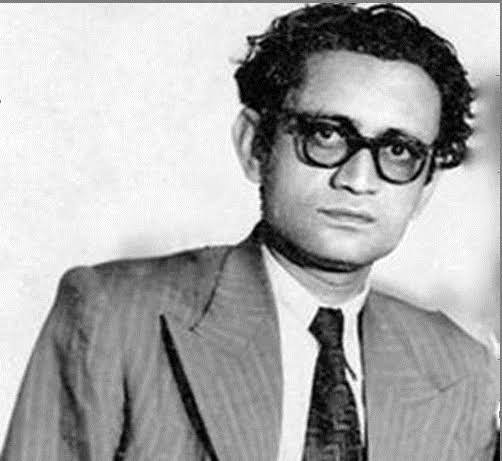
Image source
https://wikibio.in/saadat-hasan-manto/amp/
Hello friends !My intention was to share some of the fiction stories with you being written by Manto.It was necessary for me to introduce it to you, so I gave a brief introduction let's take a look!
Manto's life, like his fiction,was not only interesting but also short. Mento spent most of his short life of just 42 years, 8 months and four days on his own terms, with great carelessness and helplessness. They played life like a game and won even after losing. If the non-Urdu speaking class knows Urdu poetry with reference to Ghalib, then its reference for fiction is Manto.
In his nearly 20-year literary career, Manto wrote 270 novels, more than 100 plays, many film stories and dialogues, and sketches of many famous and anonymous personalities. He wrote 20 fictions in just 20 days in the offices of newspapers. His fiction caused a stir in the literary world. He was tried several times for pornography and was sentenced to 3 months imprisonment and 300 fines in Pakistan. Then, after his death, Pakistan awarded him the country's highest civilian award, the Nishan-e-Imtiaz. None of the myths that were prosecuted as obscene were enough to keep Minto alive. It was just that, according to Waris Alavi, "Manto's unabashed and brutal realism shattered countless beliefs, doctrines and ideas and always dared to touch the flame of life with bare fingers. For the first time through Manto we would be acquainted with these facts." There are those who, without proper knowledge, live like little personalities in the custody of soft and delicate and relaxed beliefs. " And with emotional layers, moving into his myths exposed the ugly face of society. Manto has neither a slogan nor a dream to change society. Like an expert physician, they look at the patient's pulse and tell him his disease. Now it is up to the patient and his family to decide whether to treat it or not and if so, how to do it.
Saadat Hassan Manto was born on May 11, 1912, to a Kashmiri family in the town of Sambarala in Ludhiana. His father's name was Maulvi Ghulam Hussain and he was a judge by profession. Manto was from the womb of his second wife. And by the time Manto's education was over, he had retired. Manto did not get the love of his father because he was in a bad mood. Manto was naughty as a child and neglected his education. After failing matriculation twice, he passed the examination in the third division. They used to fail in Urdu. His father's harshness created a spirit of rebellion in him. This revolt was not only against the family but also included all the accepted principles of life. It's as if they've decided that they have to live their lives on their own terms. Another aspect of this psychological entanglement was the desire to attract people. His favorite pastime during school days was to spread rumors and fool people like my fountain pin is made of donkey's horn, Lahore traffic police are being given ice coats or Taj Mahal has been bought by Americans and machines We will uproot it and take it to America. He also formed the "Stupid Association" with a few colleagues. After matriculation, he was sent to Aligarh but was expelled on the grounds that he had tuberculosis. On his return, he joined the FA in Amritsar, where his original home was. While reading less and wandering more, a nobleman introduced him to alcohol and he also got addicted to gambling. With the exception of alcohol, which left them on their own, Minto had no hobbies for long. There was anxiety in nature. Manto had to visit Hotel Shiraz in Amritsar where he met Bari (Alig). He was then the editor of the newspaper "Equality". They perceived Manto's intelligence and his inner turmoil. He turned to Manto in a very sincere and compassionate manner. And he was persuaded to leave the novels of Tirtha Ram Ferozpuri and read books by Oscar Wilde and Victor Hugo. Manto later admitted that if he had not found Bari Sahib, he would have died anonymously in a prison for theft or robbery. At Bari's request, Manto translated Victor Hugo's book, "The Last Day of a Condemned Man," under the name "Prisoner of History" within ten to fifteen days. Bari liked it very much, corrected it, and Manto became the "owner of the book". Manto then translated Oscar Wilde's collaborative play "Vera", which was edited by Akhtar Sherani. And signed the draft, dated November 18, 1934. In those days, Bari Sahib separated himself from "Masawat" and became associated with "Khalq". In the first issue of Khalq, Manto's first naturalistic fiction "Tamasha" was published.